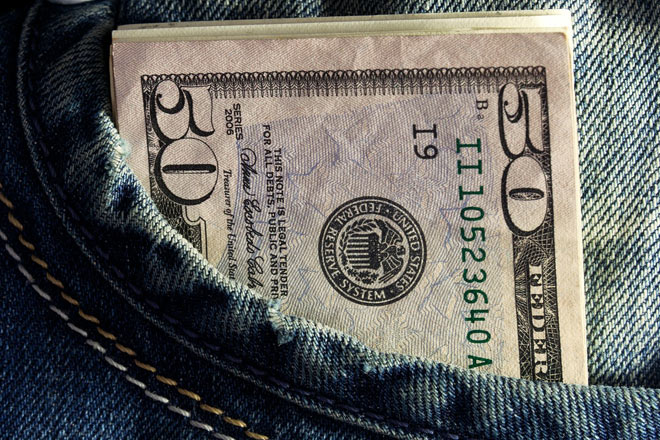
On March 31st, Amazon.com announced ‘Dash’ for their Prime members and it was no April Fools joke.
It’s a network connected button that can be placed around the house near items that will need eventual reordering. When you see that you’re low on toilet paper, for example, just press the button and Dash will automatically order your predetermined product in a predetermined quantity, while shipping it to your front door via two-day air.
This may seem like it would be a step forward in convenience, time-savings and efficiency—and that it may be.
But there is a major problem which comes along with Amazon Dash and it is much, much worse.
In order to understand just how bad this may be for us, we have to look back at a brief history of human trade.
In the earliest days, humans traded what they had for what they needed. If one were able to kill beavers particularly well, one could trade beaver pelts in exchange for things that they needed. Perhaps lumberjacking skills lacked, so beaver pelts for chopped wood could be an acceptable trade.
Involved in that trade, is the direct determination of the earned value of one single pelt. Having hunted, killed, skinned and prepared the beaver pelt for sale, one would be intimately familiar with the amount of time, energy and inherent value of that object.
When exchanging for other items, we can only imagine that one would make sure to get their fair value before handing over those hard earned beaver pelts. There was a direct, powerful connection to the spending of what was back then considered “currency,” and what it took to earn it.
The evolution of trade in recent centuries has done nothing but further remove us from the process of acquiring and utilizing these forms of currency.
Even paper currency maintains a shred of physicality and understanding of spending money. We hand over a twenty dollar bill, receive a few dollars back and our item. We physically feel the loss of that currency and to an extent the work that was done to acquire it. Checks slow down the process as well, requiring us to fill out an amount, write it out a second time and sign away our hard-earned money.
Credit and debit cards then remove us a step further from the process. With a single swipe and a signature, we’re able to spend our money and acquire whatever it is we want. In the last decade, e-commerce has become mainstream, allowing us to conveniently purchase what we want without ever leaving our homes.
What’s next?
What’s next is yet another step in reducing the friction of spending our hard earned money. A simple button push. Soon, we won’t even need to do that. Our printers will automatically order ink when they get low.
Why does this matter?
It matters because these developments are removing the pause from the purchase process.
There’s no time to check prices, determine a better solution and there is practically zero friction to give us a moment to ask ourselves if we actually need more of that item. It removes us from the process of spending money and turns the process into a simple button push and a box on the front porch, having paid whatever the going rate is online.
One push, money gone.
By further disconnecting ourselves from the purchase process, we’re making it easier to “twitch” with one-click ordering something without even turning on our computers. If you thought one-click ordering via Amazon Prime made it too easy to spend money, Amazon Dash takes it to a new level.
As commerce evolves, this natural evolution will occur and there’s little we can do to stop it due to it’s massive profitability.
It’s up to us as individuals to determine if these technological advances actually benefit us overall.
The further we become disconnected from the physical act of spending money, the more easily we’ll spend it.
If you’d like to learn more about what you can do to recreate the pause and give yourself a better chance of making better decisions, check out my post on how to break the twitch. I also share more actionable strategies on minimalism, intentional living and doing more of what matters in this book.
What do you think? Do you think the next wave of shopping technology will be beneficial to society as a whole, or detrimental to our lives in the long run?
